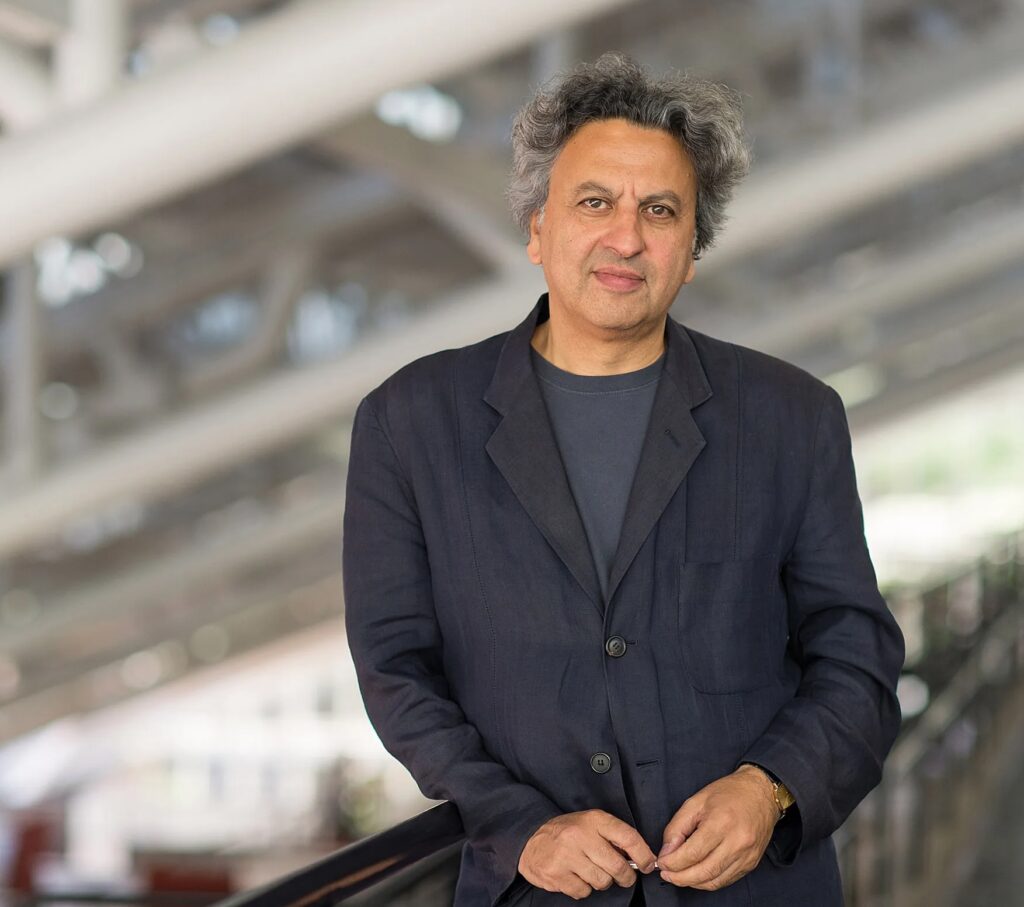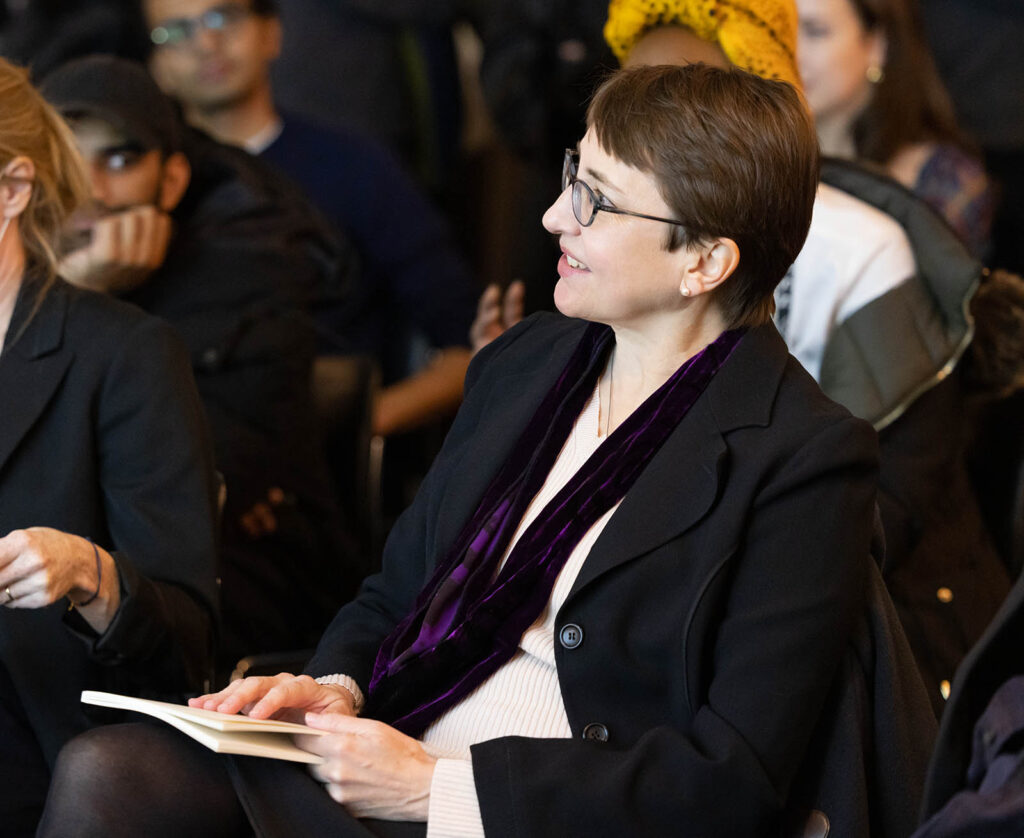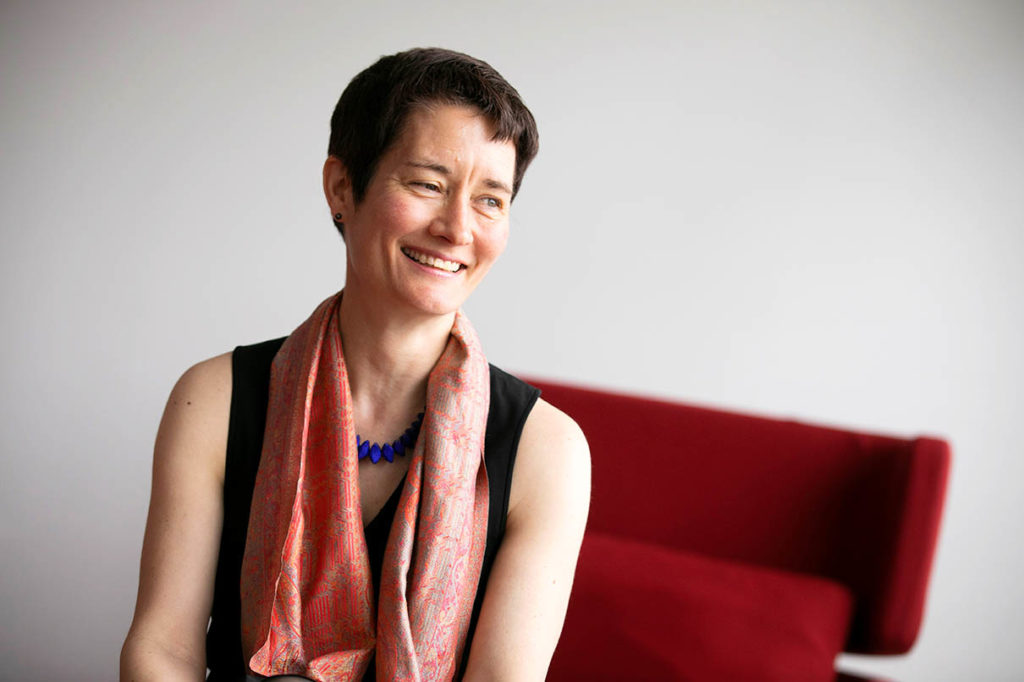Urban Natures:
Climate Change Adaptation,
Design Agency, and Politics
About This Event
Following welcome back remarks and an introduction by Dean Sarah Whiting, the Druker Design Gallery will host an evening of interdisciplinary conversation to mark the start of the fall semester and the opening of Urban Natures: A Technological and Political History 1600–2030. The exhibition measures how far we have come since the first public gardens were created, and it challenges us to envision the future of our cities in new ways. Following remarks by Dean Sarah Whiting and curator Antoine Picon, Erika Naginski will moderate a panel discussion between Gary R. Hilderbrand, Ali Malkawi, and Mohsen Mostafavi, about three themes in the exhibition: climate change adaptation, the agency of designers, and the role of urban natures in promoting new collective values.
This event is generously supported by The Harvard Center for Green Buildings and Cities and the Villa Albertine, the French Institute of Culture & Education. A reception will follow, made possible by the generous support of Ron Druker.
About the Speakers

Antoine Picon, an engineer, architect, and historian, is the G. Ware Travelstead Professor of the History of Architecture and Technology at Harvard Graduate School of Design. He works on the history of the relations between the built environment and technologies, with a special emphasis on the imaginary and utopian dimensions. He has published extensively on this subject. He is amongst others the author of Les Saint-Simoniens (2002), Digital Culture in Architecture (2010), Ornament: The Politics of Architecture and Subjectivity (2013), Smart Cities: A Spatialised Intelligence (2015), The Materiality of Architecture (2021), and Natures Urbaines: Une Histoire Technique et Sociale, 1600-2030 (2024).

Gary Hilderbrand, FASLA, FAAR, is the Peter Louis Hornbeck Professor in Practice and Chair of the Department of Landscape Architecture, Harvard Graduate School of Design. He is also principal and founder of Reed Hilderbrand Landscape Architects. Hilderbrand is a fellow and resident of the American Academy in Rome. He received the Design Medal from ASLA in 2017. His widely acclaimed publications include The Miller Garden: Icon of Modernism (Spacemaker Press, 1999) and Visible | Invisible: Landscape Works of Reed Hilderbrand (Metropolis Books, 2013).

Ali Malkawi is Professor of Architectural Technology, Director of the Doctor of Design Studies Program, and Founding Director of the Harvard Center for Green Buildings and Cities at the Harvard Graduate School of Design. His research is focused in the areas of computational simulation, building performance evaluation, and design decision support. Previously, he taught at the Georgia Institute of Technology, University of Michigan, and University of Pennsylvania, where he was a Professor of Architecture and Chairman of the Graduate Group in Architecture. Malkawi is lead author or co-author of more than 130 scientific papers and co-editor of three books. In 2017, he was honored with the Jordan Star of Science by His Majesty King Abdullah II bin Al-Hussein of Jordan.

Mohsen Mostafavi is the Alexander and Victoria Wiley Professor of Design and Harvard University Distinguished Service Professor. He served as Dean of the Faculty of Design from 2008-2019. Mostafavi has chaired and participated in the juries of the Mies van der Rohe Prize for Architecture, the Holcim Foundation Awards for Sustainable Construction, and the Royal Institute of British Architects Gold Medal. He also served on the Steering Committee of the Aga Khan awards for architecture. His books include On Weathering: The Life of Buildings in Time (1993); Approximations (2002); Surface Architecture (2002); Structure As Space (2006); Ecological Urbanism (2010); Nicholas Hawksmoor: The London Churches (2015); Architecture and Plurality (2016); Portman’s America & Other Speculations (2017); Ethics of the Urban: The City and the Spaces of the Political (2017); Sharing Tokyo: Artifice and the Social World (2023); Revitalizing Japan: Architecture, Urbanization, and Degrowth (2024); and The Color Black: Antinomies of a Color in Architecture and Art (2024).

Erika Naginski is Professor of Architectural History at the Harvard Graduate School of Design, where she serves as Director of the OHD program in Architecture, Landscape Architecture, and Urban Planning. Her publications, which focus on European architecture (1600-1800), include books and co-edited volumes such as Polemical Objects (2004), Sculpture and Enlightenment (2009), and The Return of Nature (2014). She has received fellowships from the Harvard Society of Fellows, the Radcliffe Institute for Advanced Study, the Deutsches Forum für Kunstgeschichte, the Sterling and Francine Clark Art Institute, and the John Simon Guggenheim Memorial Foundation.
Plimpton-Poorvu Design Prize
Hours
Mon-Fri: 9a.m.–5p.m.

The Plimpton-Poorvu Design Prize is now accepting applications.
All submissions are due at 12:00 pm (noon, EDT) on Friday, January 17, 2025. Start the process sufficiently prior to noon in order to ensure your submission has time to upload fully before the deadline.
The 2024–25 competition committee is composed of faculty from all departments, including Mohsen Mostafavi (committee chair), Jungyoon Kim, George Legendre, Anne-Marie Lubenau, Maurice Cox, and Frank Apeseche (special advisor).
Questions may be submitted to Amanda McMahan, Director of Administration, Office of the Dean.
A recording of the PPDP student information session held on October 29, 2024 is available below for reference.
How to apply
To apply, please submit a PDF document that includes the information requested below to the OneDrive File Upload Link by 12:00 pm EST on Friday, January 17, 2025. Applications submitted after the deadline will not be considered.
Applications must include the following three components in one PDF document with the filename “Applicant_Name_PlimptonPoorvuPrize2024”:
- Coversheet listing the following information:
- 2024–2025 Plimpton-Poorvu Design Prize Application
- Applicant Name
- Degree Program
- Graduation Date
- GSD Email Address and Permanent Email Address
- Course Number and Title in Which the Work Was Submitted
- Written Statement that describes the project and demonstrates the project’s feasibility in design, construction, economics, and fulfillment of market and user needs (1 page, approximately 300 words). If any aspect of collaborative work is submitted by an individual, the authorship of the work should be clearly identified and distinguished from that of the applicant. Projects performed as independent studies outside the GSD or as part of a professional commission will not be eligible.
- Visual Representation of up to 15 pages to supplement the written description (8.5×11 inch format) Note: Hardcopy, CDs, slides, loose materials, or physical models will not be accepted. All files must be uploaded to the OneDrive File Upload Link.
Notification of Recipients
The prize recipient will be announced at the GSD Awards and Diploma Ceremony as part of Commencement in May.
Eligibility
The Plimpton-Poorvu Design Prize encourages collaborative and cross-disciplinary work. The prize is awarded to an individual or team whose project, completed as part of their GSD curriculum, best demonstrates feasibility in design and construction and fulfills market and user needs.
Specifically, the jury looks for development proposals that use innovative design strategies to solve a problem, address a need, or serve a demand in ways that demonstrate a plausible path to implementation. Demonstration of feasibility may include a market analysis, business plan, and project pro forma.
Teams must have at least one GSD student and may include students from across Harvard and other universities. First, second, and sometimes honorable mention prizes are awarded to projects in amounts up to $20K.
Course work completed during the Spring 2024 and Fall 2024 semesters is eligible for the 2024-25 review cycle. A committee comprised of faculty members from each department will select a shortlist of candidates who will participate in a review and then be asked to submit a revised application, incorporating feedback from the conversation, in March 2025. The faculty committee, department chairs, and dean will review the revised submissions and select the prize recipients in April 2025.
Dean’s Office Resources
In this folder:
Dean’s OfficeJoy Guillen-Florez
Fact Book
Bia Pessoa
Dean’s Office

Sarah M. Whiting
Dean and Josep Lluís Sert Professor of Architecture
Staff

Joy Guillen-Florez
Executive AssistantDean’s Office

Amanda McMahan
Director of Administration, Office of the DeanDean’s Office

Bia Pessoa
Assistant Director of AdministrationDean’s Office

